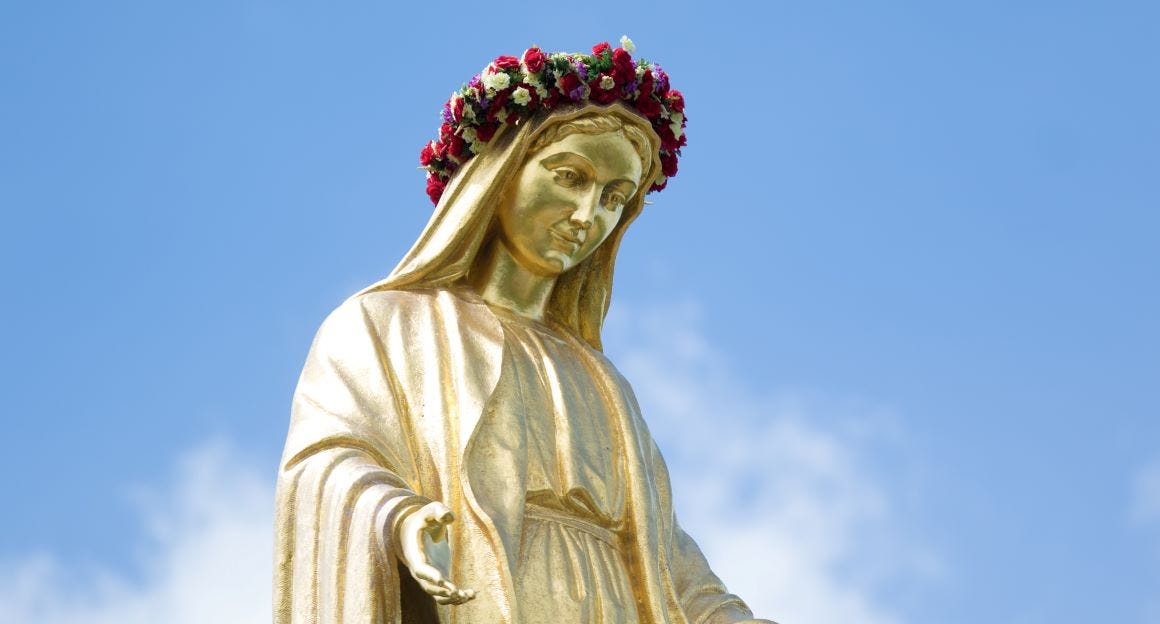We, casually, use the word hope in a way that strays far from its properly Christian meaning. We hope it won’t rain tomorrow. We hope the Orioles will win tonight. We hope certain questions won’t appear on the test. And so on.
In each case, our hope is hope in a future, contingent particular—and a contingency, by definition, may or may not come true. A forecast of a sunny day is no guarantee. The Orioles ace might not have his best stuff. The professor may decide to pursue another line of questioning. This kind of hope is a roll of the dice—a simple act of wishing for the most favorable outcome, without any guarantee.
But this is not hope—at least not in the theological sense. If I say I hope in God, I do not mean I hope that God exists, as if it were a coin toss either way. Rather, when I say I hope in God, I mean that Because I believe that God does exist, I hope that God’s promises will come true. But again, this is not left to chance. God will not suddenly pull back on his commitments. At the same time, if I knew that God’s promises would, without question, be fulfilled in me, hope would not seem to be the right word. I’m not sure what the word would be, but hope would only apply if there’s a possibility that God’s promises will not come true in me. So, hope, in the theological sense, is both a presence and an absence; a having and a wanting; something close and something far. God has promised something, and I can take confidence in his fidelity to his promise, but I am not guaranteed that I will attain it.
Why? Well, if the possibility that my hope will be in vain cannot have anything to do with God, it must have everything to do with me. In fact, I hope in God not because God might not be faithful to me, but because I might not be faithful to God; and the choice to be faithful to God or not is entirely my own to make. If I say I hope in God, what I mean is that I hope that God, who is faithful to his promises will keep me faithful so as to attain what he promises.
I am beginning my time here as Chaplain, so naturally I have been thinking a lot about what this place means. The Mount’s motto is Spes Nostra—Our Hope; and this is in reference to the Blessed Virgin Mary. Why is Mary our hope?
First, it’s because Mary herself hoped in God. She believed that God would be faithful to the promises made to the children of Israel, beginning with Abraham and carrying through his descendants. She also believed when it was revealed to her that those promises would be fulfilled through herself—by giving birth to the promised Messiah, Jesus Christ.
Second, it’s because Mary already possesses that for which we hope. Mary’s Assumption into heaven, body and soul, is the promise made to each of us: that the whole of our person would live with God eternally. In Mary, we have the assurance that God is not bluffing. His providence is not simple chance. What he has done in her is what he desires to do in us. She is our hope because that for which we hope already lives in her.
Third, it’s because Mary shows us that the way to attain that for which we hope is to hope. We can sing of the glories of Mary all day long, and rightly so. But nothing Our Lady did—no thought she had, no act she accomplished, no virtue she possessed, no love she showed—happened apart from God’s grace. What her Son taught his disciples applied also to her, “Without me you can do nothing” (Jn. 15:5). Mary teaches us that the path toward the fulfillment of our hope is possible for us to walk only with the Lord’s help.
And to walk this path is to walk in hope. It means not always knowing what the Lord is up to. It means—unlike her, for she is immaculate—we have to make sense of the Lord’s grace through our weaknesses, failings, and sins. It means living every day of our Christian life as a presence and an absence; a having and a wanting; something close and something far. This is to live in hope. But to live in hope never loses sight of the promise. To live in hope never despairs of the appointed means of attaining it. To live in hope never gives up. Hope keeps going, one step at a time.
If you are coming to the Mount for the first time, or if you are returning for a second, third, fourth year (or more), make this year a year of hope—and Our Lady, Our Hope, will be with you every step of the way. May she lead us all to her Son.
Homily preached August 15, 2024 in the Immaculate Conception Chapel at Mount St. Mary’s University.




